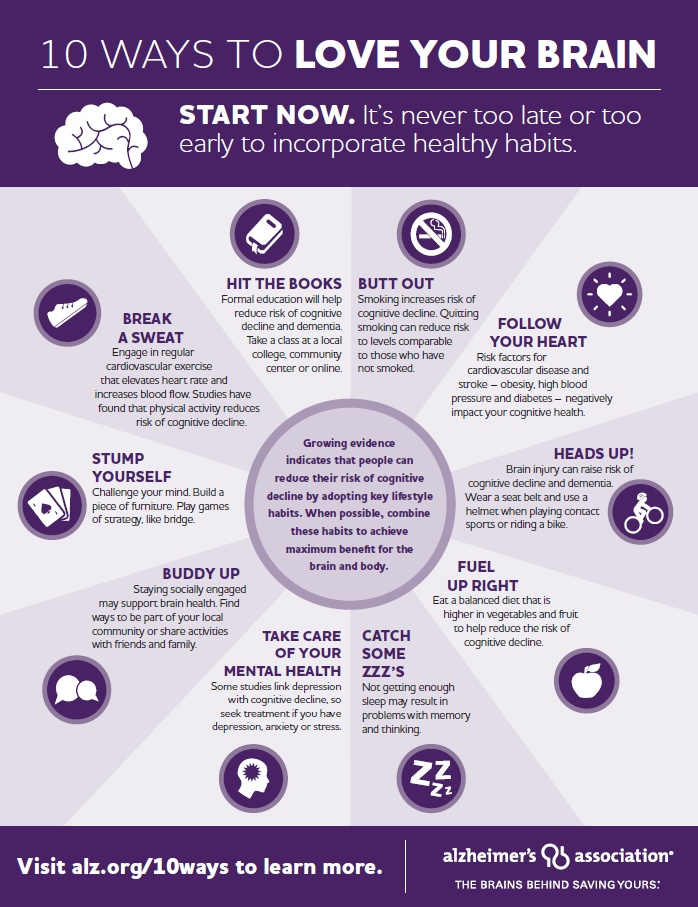JFS leaders provide valuable perspectives and insights for agency growth and success.
Meet our newest Board Members!
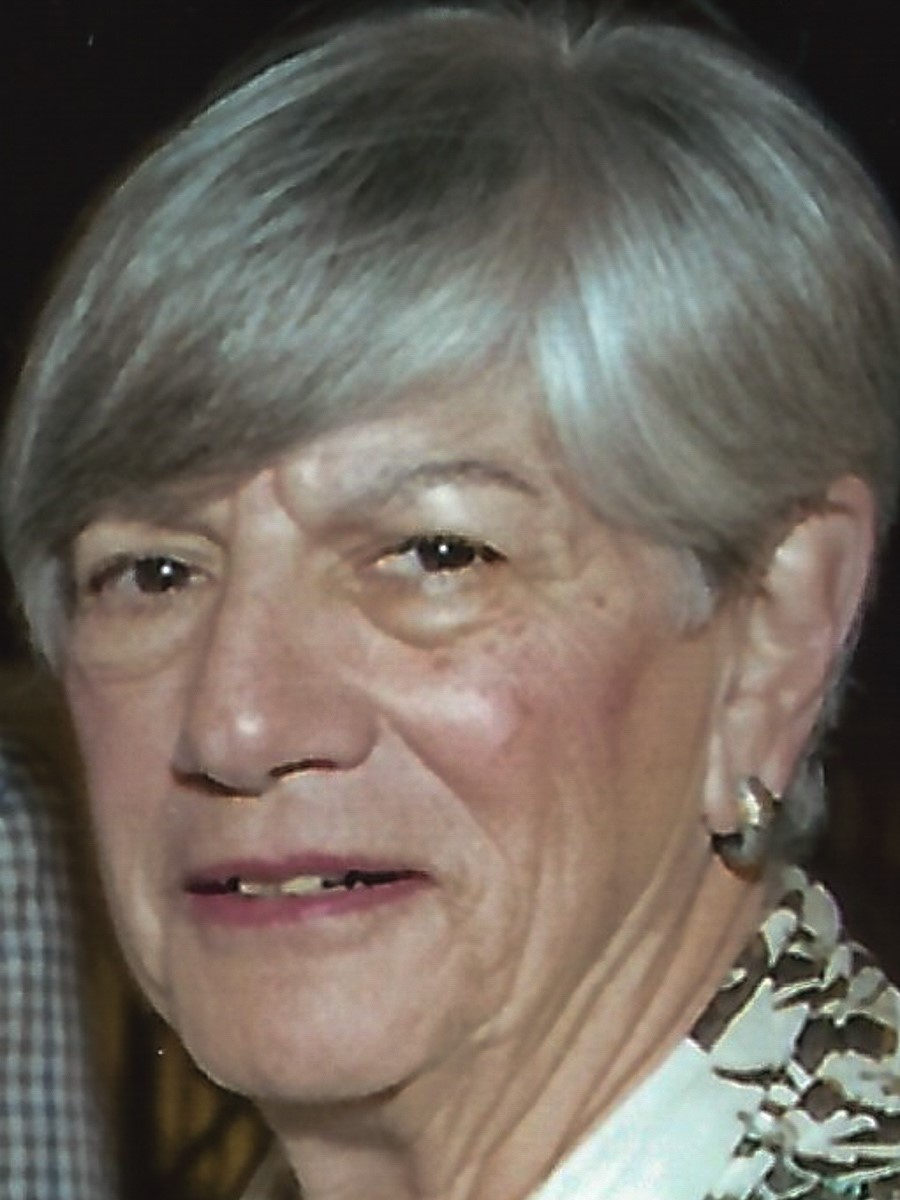 JFS: Tell us about yourself!
JFS: Tell us about yourself!
GF:I moved to Delaware after graduating from Boston University and marrying my husband, Paul, almost 56 years ago; we raised our three daughters here. After working initially at Delaware State Hospital as an Intake Worker, I pursued a Master’s degree in Social Services from Bryn Mawr and spent the majority of my career working for the Division of Child Protective Service. Prior to becoming grandparents, we moved full time to Florida for 16 years, but recently moved back to Delaware to enjoy our twin granddaughters and grandson.
JFS: How did you get involved with JFS?
GF: Family has always been very important to me and, working in the field of social work, I have gained an even greater appreciation for the importance of family stability. We have always been active in the Jewish community and, when we moved back to Delaware, it was serendipitous that JFS was celebrating a big anniversary—getting involved was a natural fit for the volunteer work I wanted to do.
JFS: What are you passionate about?
GF: One important message I learned over the course of my career is the difference we can each make in the lives of others. JFS has grown and evolved over the years and is providing the kind of services for which there is great need. I have a desire to help children and families and believe I can by supporting and promoting JFS’ mission. I hope my involvement and leadership will provide positive examples for my children, grandchildren, fellow board members, and the entire community.
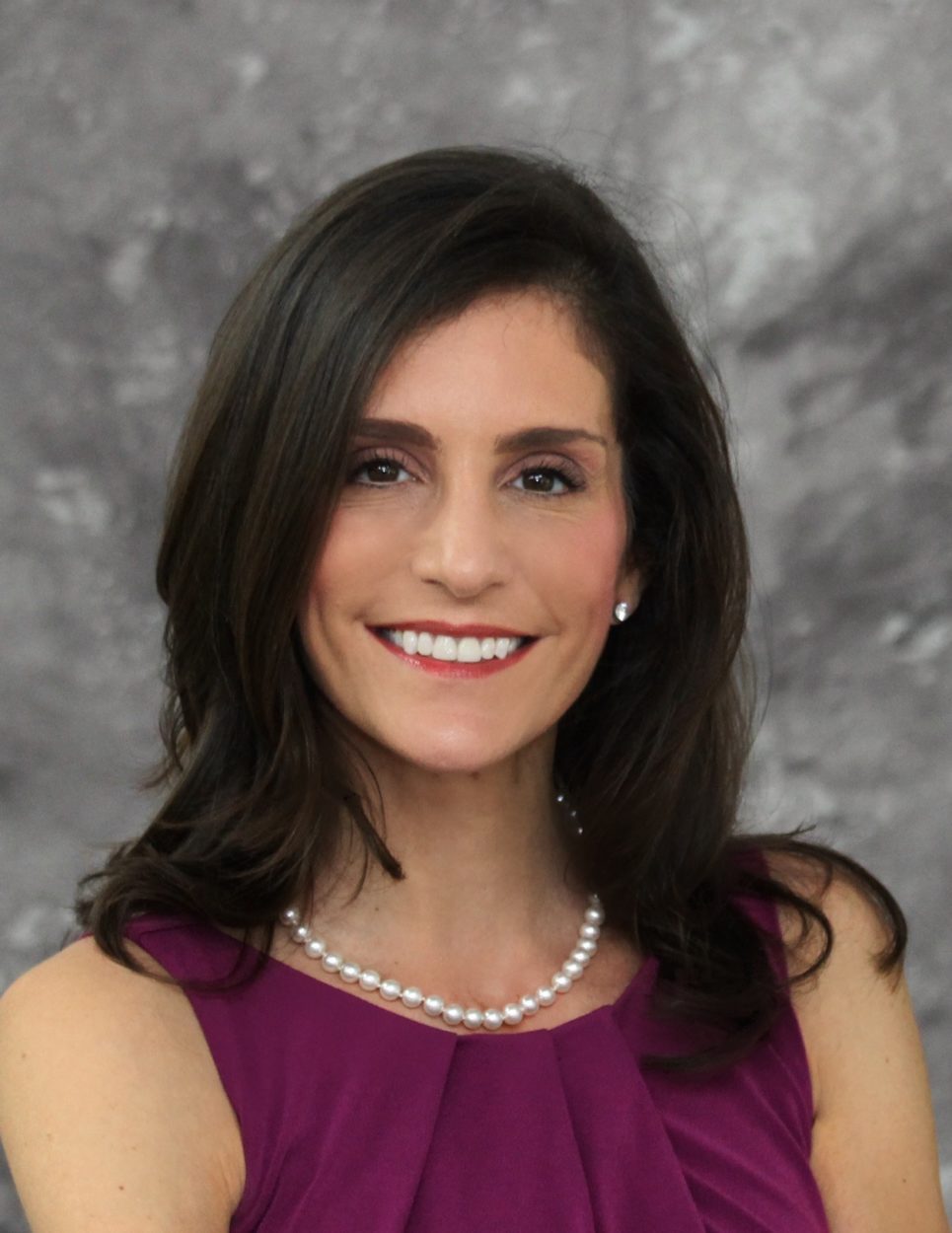 JFS: Tell us about yourself!
JFS: Tell us about yourself!
LO: I have been living and appreciating the sense of community in Delaware for the past seven years since my husband and I moved from Boston. I transitioned from a career in financial services recruiting to start my own business as a professional organizer. I’m a proud step mother to 3 children and grandmother of four, a role I cherish. Our interfaith family loves to celebrate holidays and we look forward to any excuse to spend time together.
JFS: What brought you to the JFS Board?
LO: I grew up in a close-knit family that was committed to Tikkun Olam, repairing the world; in fact, my mother worked at Jewish Family & Children’s Services in Boston. Over the years, I have been impressed by JFS Delaware’s critical work and impact in the community and I am delighted to have the opportunity to collaborate with fellow board members. I am passionate about contributing to an organization which strengthens the community by providing valuable services and promoting social justice causes. I’m thrilled and honored to join the JFS Board because their mission aligns with my personal values.
JFS: What does leadership mean to you?
LO: I believe a great leader is both a motivated person and an adept motivator of others. To lead, one must be enthusiastic and know how to leverage resources. An inspired leader must have a high degree of integrity and be inclusive; I look forward to bringing people together through my leadership with JFS.
 JFS: Tell us about yourself!
JFS: Tell us about yourself!
CW: My wife Carolyn and I have been married for 31 years and we have two amazing sons. I spent my professional life as both a lawyer and a banker; I retired 18 months ago from Barclays Bank Delaware, which I proudly helped form over 20 years ago. I have spent my retirement working with many non-profits and appreciate the opportunity to be involved in the community and lend my expertise.
JFS: How did you get involved with JFS?
CW: I have always enjoyed working with non-profits and I’ve been involved with Cancer Care Connection for the past 18 years; now that Jewish Family Services is combining with Cancer Care Connection, I’ve been a proud part of the transition team. The more I learn about JFS, its mission, and its people, the more I like it. JFS helps a LOT of people in many meaningful ways through their valuable services and programs, so I leapt at the opportunity to join the Board when it was offered to me.
JFS: What are you passionate about?
CW: I love to surf and we are lucky to have many beautiful beaches in Delaware! But, on a more serious note, I am extremely passionate about working with effective non-profit organizations whose missions help those in need, and to do it in a way that achieves demonstrable, measurable results; I believe JFS is all that and more.
Starting July 1, 2020, Jewish Family Services (JFS) will be merging with another Delaware non-profit, Cancer Care Connection; specifically, Cancer Care Connection (CCC) will be combined into JFS. With this mutually-beneficial partnership, JFS will increase community awareness of CCC and ensure the continuation of its important work, while CCC fills a gap in JFS’ current services by providing their oncology-specific, psycho-social expertise.
For a transitional period and until her retirement, CCC’s Executive Director, Janet Teixeira, will join JFS’ executive leadership team to ensure a seamless integration of the organizations and maintain the day-to-day operations of Cancer Care Connection, which will retain its independent identity and brand.
“We are thrilled to become part of the JFS family on so many levels,” said Teixeira. “It assures the future of Cancer Care Connection, helps us reach more people, and expands the way both organizations help our clients. Sharing our commitment to provide high quality, meaningful services, JFS is the ideal partner and home for us.”
Having assessed the organizational, philosophical, and cultural fit of each organization with the other, the complementary nature of CCC and JFS services affords opportunities to strengthen, expand, and—in the long term—create new programs to better serve their joined client base and grow a service that is desperately needed in the region. Recent cancer statistics show that Delaware has the second highest cancer incidence—and Pennsylvania is close behind at third highest—despite all ongoing efforts to reduce the rate of cancer; additionally, Delaware ranks 15th highest in cancer mortality, followed by Pennsylvania at 16th highest. These statistics indicate that there are many individuals in the region who could benefit from oncology-specific support services.
“This level of specialty and efficiency can change the entire trajectory for a cancer patient and their family.”
“The idea that JFS, now with Cancer Care Connection, can become a one-stop-shop for cancer patients and their families in our community makes my heart soar,” says Erica Griffiths, a Delaware mom with Stage 4 Metastatic Breast Cancer (MBC), whose daughter currently receives therapeutic support from JFS. “This level of specialty and efficiency can change the entire trajectory for a cancer patient and their family.”
For JFS, this partnership is a natural extension of the agency’s mission to provide counseling and support services to vulnerable individuals and families to navigate life’s challenges.
“We are always thinking creatively and strategically about how to strengthen our services and broaden our reach to best serve our community,” shared Basha Silverman, CEO of Jewish Family Services. “With CCC’s shared commitment to creating an effective and impactful response to the emotional needs of those we serve, together we can really make a bigger, bolder difference for individuals and families who need our specialized support services. We are grateful to partner with Cancer Care Connection to make this possible.”
Cancer Care Connection (CCC) helps people affected by cancer to navigate the full range of the issues they face, make informed decisions, and take action on their own behalf. CCC’s Oncology Social Workers help cancer patients and their caring circle to reduce any cancer-related distress. CCC’s staff provides coping assistance, counseling services, and guidance to find resources and information needed to overcome obstacles and obtain the best possible outcome.
Learn more about Cancer Care Connection at www.cancercareconnection.org
JFS made the official announcement of the merger at our Annual Meeting on June 11, 2020.
View the event and announcement in the video below!
Story & Reflection Written by: Stacy Repp, MSCC
When schools first made the decision to close for the pandemic, my immediate concern was for all the students Family Crisis Therapists serve on a daily basis…
How will they manage isolation at home?
Do they have activities to keep them busy? to keep them safe?
As parental frustrations rise, will they possibly experience physical or emotional trauma?
I just felt like we needed to do something for our students; I knew we couldn’t physically be there for them, but I wanted them to know we still cared and would stay connected.
That is when I inquired about making care packages for each of our families. This wouldn’t necessarily be filled with personal care items and food like many other organizations and centers were already assisting with – this care package would be specific to our kids and their needs. The JFS Stay-at-Home Survival Kit included items such as stress balls, slime, kinetic sand, rubix cubes, crayons, markers, colored pencils, coloring books, word searches, sets of cards, and a few snacks. Additionally, we included a large binder full of social-emotional learning resources each of the Family Crisis Therapists or parents could use during virtual Zoom or telephone sessions with our students.
What kid doesn’t love to get a surprise package on their doorstep?
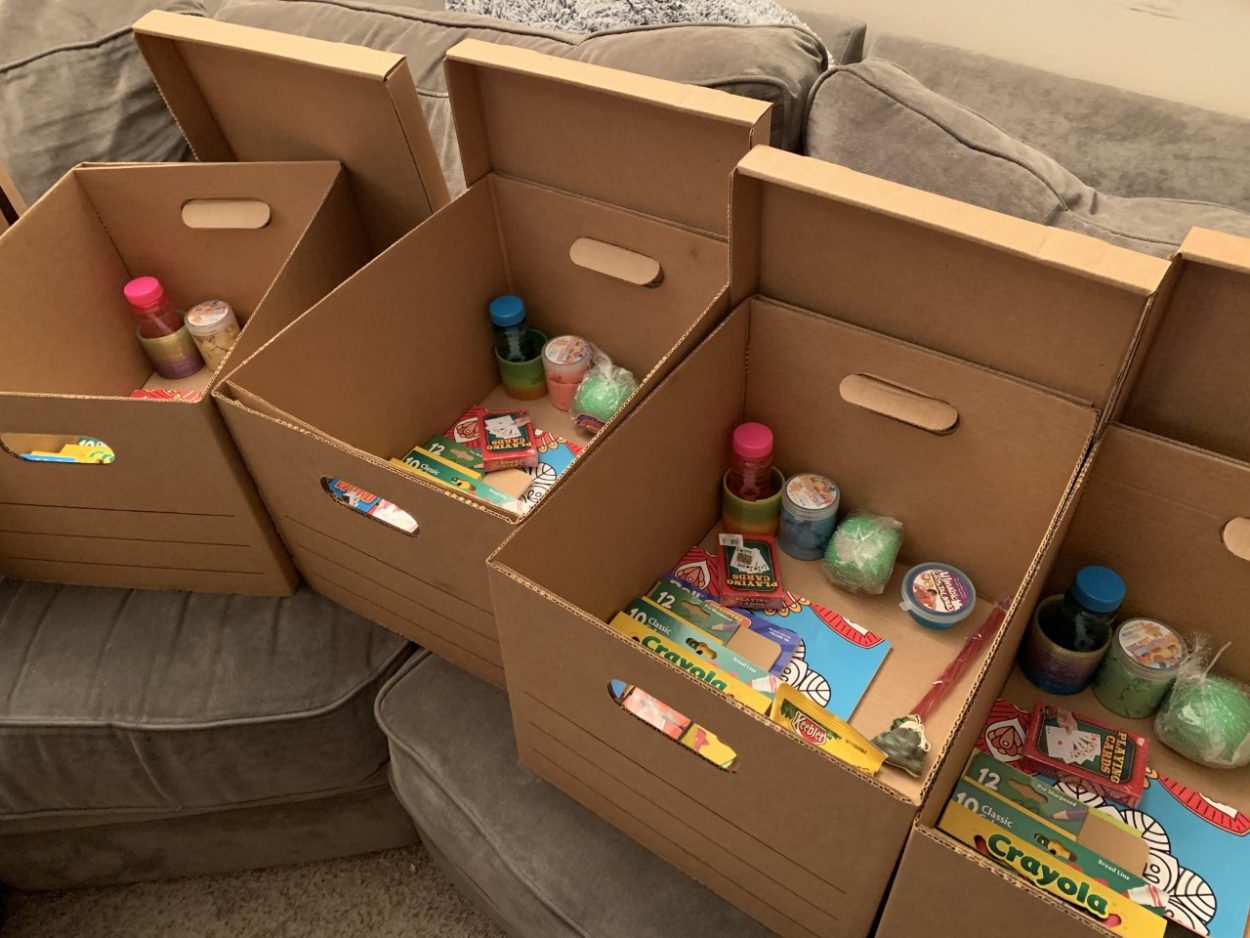
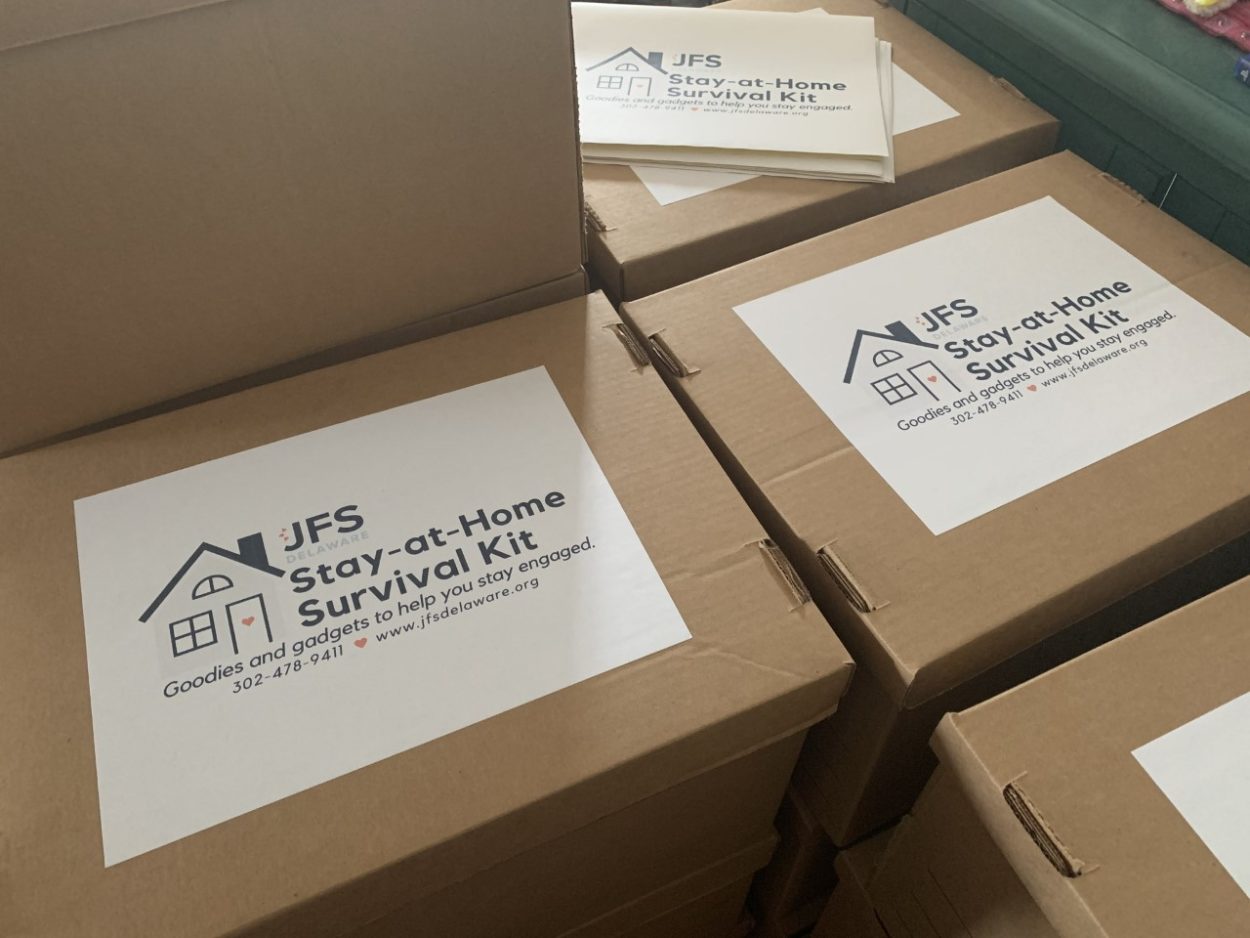
Due to the stay-at-home order in Delaware, all of the supplies were shipped directly to my home to be cleaned, sorted, and assembled into the kits. This was truly a family project as the boxes took up my entire living room; my own kids helped me sort items into each box and they really enjoyed getting to help put together “presents for Mommy’s school kids.”
Printing forty copies of the resource binders turned into a full day’s work, many reams of paper, ink and toner cartridges, and lots and lots of hole-punch confetti. Once the binders were completed, it was obvious what a valuable resource they would be for our current students and families, as well as for future Family Crisis Therapists.
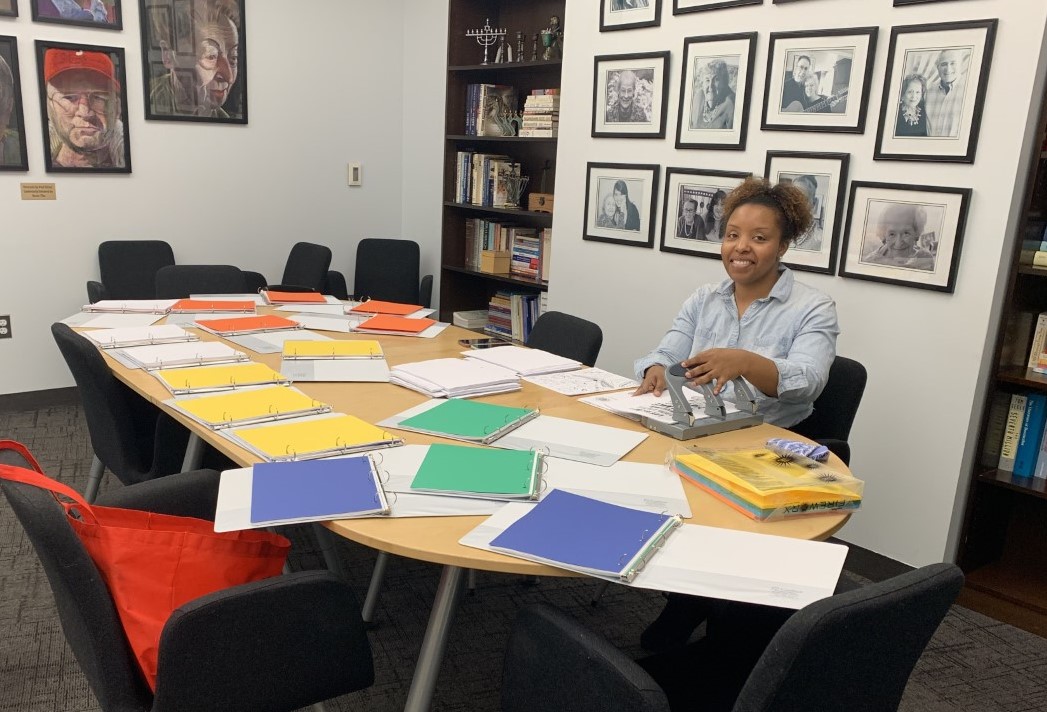
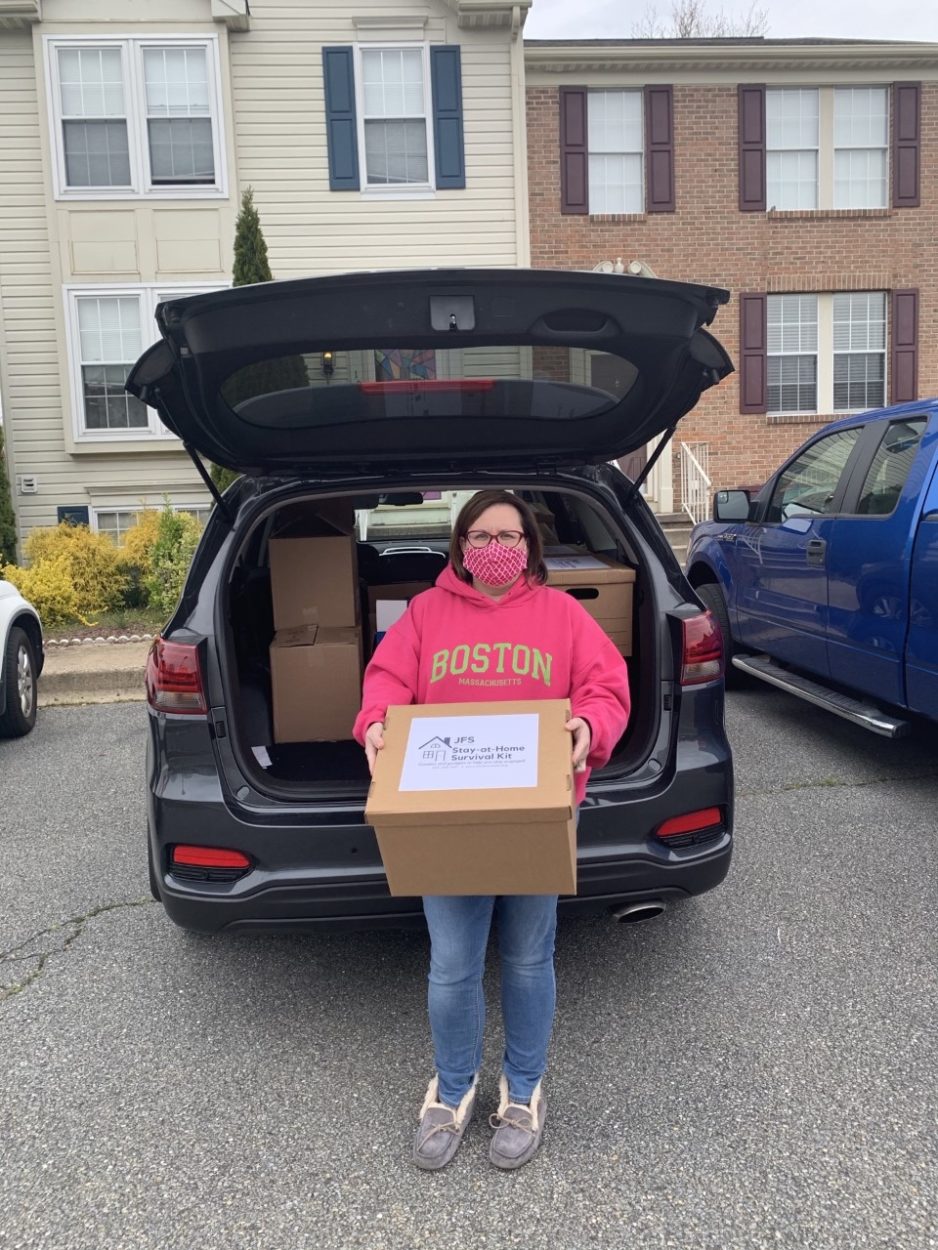
The next step was probably the best part…delivery!
Getting to drop off the care packages on the doorsteps of students, whose faces we hadn’t seen in weeks, was absolutely the highlight of this project. Just to see that they are all okay and to be able to wave and tell them we love them and miss them and can’t wait to see them again soon was enough to put a smile on my face for the rest of the week.
Our students really mean a lot to us and it has been so meaningful to help and connect with them in this way during such an unusual and confusing time.
This project was made possible by United Way of Delaware’s “Delaware Does More COVID-19 Rapid Response Fund”
As part of the state of Delaware’s Early Intervention Program, JFS Family Crisis Therapists help students in kindergarten through fifth grade build skills to effectively manage their own behaviors and successfully transition into middle school.
Written By: Madeline Driban, JFS Communications Specialist
Every year, at the Passover Seder, we retell the Exodus story, asking thought-provoking questions and completing symbolic rituals, including a recitation of the ten plagues. While we live in a different world now, we are reminded that, even after our liberation from slavery, there are still many challenges plaguing modern society; our journey to redemption is ongoing, demanding work of our hearts, hands, and minds.
While we celebrate our liberation from bondage in Egypt, many people are still the targets of discrimination and hatred today. Fear of “the other” produces and reinforces racism, xenophobia, anti-immigrant sentiment, anti-semitism, homophobia and transphobia. As quintessential victims of discrimination and prejudice, on Passover, the Jewish people affirm our identity as the once oppressed; we refuse to stand idly by amid discrimination and hatred which still plagues communities across our country and around the world.
Access to affordable housing, quality physical and mental health care, nutritious food, and quality education is far from equal and the disparity between the privileged and the poor is growing. The Torah’s social ethics point to many causes of inequality; whether episodic, such as illness or natural disasters, or systemic, such as discrimination or legal favoritism, Jewish values inspire us to deepen our empathy, resist greed, and pursue visionary change through personal or social action.
One in five Americans experiences mental illness in a given year; even more alarming, according to NAMI (the National Alliance on Mental Illness), nearly two-thirds of people with a diagnosable mental illness do not seek treatment, and minority communities are the least likely to search for or have access to mental health resources. Social stigma surrounding mental illness is a widespread plague; people have suffered from discrimination and shaming, but our society is increasingly equipped with knowledge and resources to eliminate this stigma. Reach out to your loved ones, ask for help if you need it and offer your support in return – no one should be left to wander their deserts alone.
According to the national Law Center on Homelessness & Poverty, an estimated 3.5 million people are likely to experience homelessness each year. In Delaware, on any given night, 1,000 people are sleeping on streets, in cars, or at emergency shelters; one of every four of them is a minor. Passover is a story of a wandering people on a journey to find their homeland; as we gather for the Seder and meal in our homes, let us not forget those who still do not have this comfort.
We are living through the worst refugee crisis since the Holocaust. Every Passover we remember, “once we were foreigners in the land of Egypt, and now we are free.” Generations later, this liberation teaches us to love the stranger as ourselves. With the memory of generations of our own ancestors living in fear or fleeing their homes, we must commit to opening our hearts and doors to those seeking safety and comfort…because our people were refugees too.
About 49 million Americans experience food insecurity. While resources exist for low-income families, many still struggle with barriers to access these assistance programs. As part of the Passover Seder, we declare, “Let all who are hungry come and eat!” Let these not be empty words, but a heartfelt invitation and plea to end hunger and food insecurity.
Forgetful of its gifts, humans actively and passively destroy the environment through pollution, wastefulness, deforestation, and widespread apathy toward improving our behaviors and policies. One of the strongest tenets of Judaism is tikkun olam, repairing the world, and with small actions, we can achieve just that; instead of weighing down the seas with trash, let’s eliminate their burden so they may part for us, providing a path to a cleaner future.
Information is moving faster, louder, and brighter than ever before; entertainment, social media, and the barrage of meaningless information beg for our attention. Overwhelmed by it all, people develop a selective attention, paying mind only to matters close to them and distancing themselves from the world around them. Distracted, we are losing the ability to connect in meaningful ways; these days, personal connection is a double-tap on a screen rather than a handshake or pat on the back. As we take a holiday break from the motions of day-to-day life, let us take stock in all we have overlooked and express gratitude for the people, memories, and traditions that surround us.
As a society, we do not adequately address violence – including rape, sex trafficking, child abuse, domestic violence, and elder abuse – even though incidents happen and reports are made every day. Who is speaking up about the injustices that affect us, our friends, our communities? In ancient Egypt, Moses knew better; if he had not advocated against the injustices he witnessed against the Jews, they probably would never have fled, and the Jewish people and our communities around the world would not be what they are today. Remembering his courage and demand for justice, may we remember to be better.
When faced with these modern plagues, how often do we doubt or question our own ability to make a difference? How often do we feel paralyzed because we do not know how to bring about the desired change? We cannot stand idly by waiting for deliverance. Together, we can find our own redemption and make our visions of stronger and inclusive communities, a healthier and better world, a reality.
Written By: Madeline Driban, JFS Communications Associate
In the months leading into summer, parents and guardians are tasked with finding activities and programs to occupy their children’s schedules during their months out of school. This is no easy task, but the value of day camps is indisputable as it provides opportunities for children to safely try new things, make friends, and remain creative and active during their summer break.
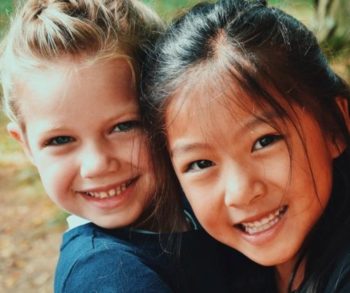 For families with children who have social, emotional or behavioral challenges, this becomes even more difficult as the fear of their child being stigmatized or rejected by a camp unequipped to assist with these challenges keeps them from enrolling or disclosing the child’s needs. During the school year, many of these students receive in-classroom support through an Individual Evaluation Plan (IEP), but these supports do not follow the children through the summer months, which can lead to isolation, disruptive behaviors, and challenging group dynamics for parents and camp staff to manage. Children without these critical supports are at risk of falling behind socially and developmentally; further, their behavior can be difficult to manage for camp staff who have not been specifically trained.
For families with children who have social, emotional or behavioral challenges, this becomes even more difficult as the fear of their child being stigmatized or rejected by a camp unequipped to assist with these challenges keeps them from enrolling or disclosing the child’s needs. During the school year, many of these students receive in-classroom support through an Individual Evaluation Plan (IEP), but these supports do not follow the children through the summer months, which can lead to isolation, disruptive behaviors, and challenging group dynamics for parents and camp staff to manage. Children without these critical supports are at risk of falling behind socially and developmentally; further, their behavior can be difficult to manage for camp staff who have not been specifically trained.
To ensure all campers are offered an enriching, safe, and fulfilling camp experience, Camp JCC and Jewish Family Services have identified an inclusive solution: Kadima (Moving Forward).
“The original brain–storming for Kadima came from a place of compassion and commitment,” shared Mona Duwell, Chief Operating Officer of the JCC. “JFS and the JCC recognize that the change in routine during the summer months can leave some children and families without their usual support systems, on which many rely.”
In the summer of 2017, JFS sent a volunteer therapist to spend about 4 hours a week to assist with behavioral issues and disruptions identified by camp staff; on a daily basis and throughout the summer, the JFS therapist provided camp counselors with consultation, observation, and opportunities to discuss and debrief difficult camper interactions. Campers, counselors, and families benefited from this added layer of training and expertise and, the following summer, a licensed therapist provided this support for an increased 12 hours a week, resulting in more positive outcomes. For 2019, there was a proposal for even more support from JFS’ licensed professionals, having them officially join the Camp Health and Wellness Department and comprehensively infuse Kadima mental health supports for campers with extra social and emotional needs.
“By adding a qualified JFS counselor to our Camp JCC Health and Wellness team, we reinforced our mutual commitment to supporting our campers, their families, and the camp staff,” said Duwell.
“These critical therapeutic support services and partnership with Camp JCC creates a welcoming environment and opportunity to seamlessly assist campers with special needs through activities with individual, group, and crisis interventions,” added Jane Galli, Director of Outpatient Behavioral Health at JFS. “This allows them to participate in the camp community comfortably, with the supports they require to succeed.”
It’s not just campers and counselors reaping the benefits of this partnership – parents and caregivers are reassured by this presence of therapeutic support. For example, one set of parents were concerned their child with anxiety would struggle in an unstructured camp setting with multiple activities, outside eating, public swimming, and weather-forced changes. The JFS therapist and camp staff worked closely with the family to address their concerns, as the parents know their child best; the therapist oversaw and monitored the accommodations the child required so they could transition positively into the camp setting.
“Parents and caregivers are put at ease knowing their child can move forward in their individual psychosocial growth and behavioral goals while still having some summer fun,” explained Galli.
Kadima’s success creates a unique and desperately-needed inclusive opportunity for children with extra needs and their caregivers to be part of a camp community. The programmatic partnership is a gift for children, families, and camp staff to feel fully supported and creates an environment suitable for all children and their families during the summer break.
“I’ve seen our camp staff grow in their confidence working with their campers, and parents have become more open to partnering with us to provide a successful summer experience,” observed Duwell. “The success of Kadima is undeniable, and we’re excited to watch the benefits of the JCC and JFS partnership continue to grow in the summers to come.”
For more information about counseling and support services at JFS for children and families, contact us at 302-478-9411.
Every 22 hours, on average, someone in Delaware dies of an overdose.
Saving lives, getting people into housing, changing perceptions, and providing critical secondary supports are still challenges, years into the opioid crisis.
Thursday, January 16, 2020, Jewish Family Services was among eight organizations involved in combating the epidemic which received a share of more than $1 million from Highmark Delaware Blue Cross Blue Shield’s donor-advised fund, BluePrints for the Community. Specifically, JFS was awarded a $118,000 grant from BluePrints to provide therapeutic and supportive interventions to address the needs of family members and loved ones affected by the various emotions, stigma, and hardships of loving an addict.
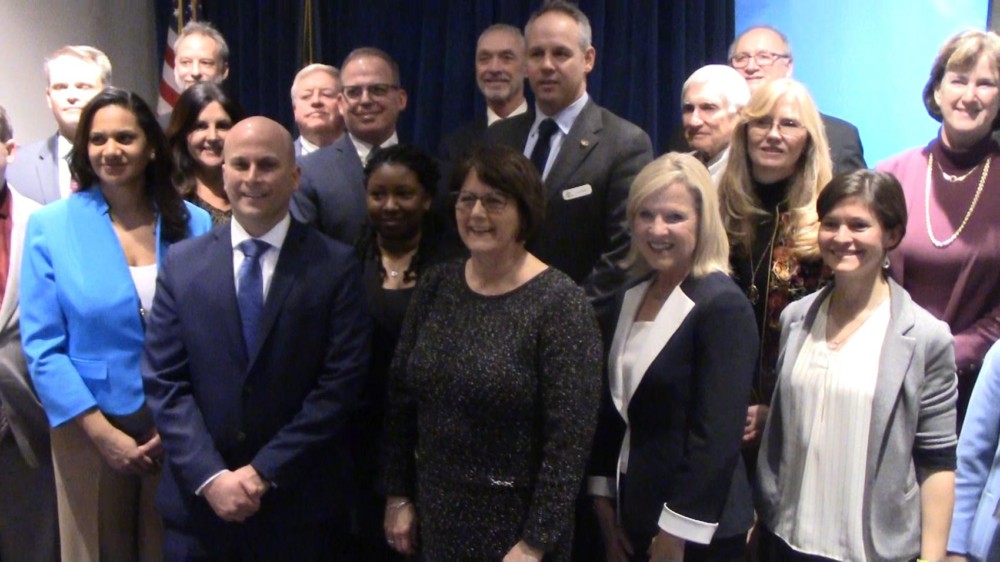
“Highmark Delaware is enthusiastic about the Jewish Family Services focus on family,” said Nick Moriello, president, Highmark Delaware. “Meeting the needs of those struggling with a substance disorder are critical, and addressing the hardships experienced by the family and loved ones who are supporting those individuals is also key to combating this issue.”
BluePrints for the Community is a donor-advised fund at the Delaware Community Foundation. It was established in 2007 to serve the healthcare needs of Delaware, with emphasis on, but not limited to, the needs of the uninsured and underserved, as well as health care disparities in minority communities. Highmark Delaware has committed to over $1.1 million to support local organizations in our statewide work to combat opioid abuse and its negative impact on the lives of our friends and family members.
About Highmark Blue Cross Blue Shield Delaware:
Highmark Blue Cross Blue Shield Delaware serves approximately 460,000 members through the company’s health care benefits business. It is an influential company in the market generating an economic impact of $135 million and supporting more than 1,000 direct and indirect jobs across the state. Highmark Blue Cross Blue Shield Delaware is an independent licensee of the Blue Cross and Blue Shield Association, an association of independent Blue Cross and Blue Shield companies. For more information, visit www.highmark.com.
Republished from the Alzheimer’s Association, with introduction by JFS professionals.
Memory care is a quickly growing segment of senior care programs across the country and around the world. As aging parents and grandparents express their wishes to stay in their homes as long as possible, there’s a sense of urgency to identify and enroll in programs that promote senior health, independence, and “aging in place.” However, this frantic search does not need to happen so much later in life – there are habits we can all adopt that promote prolonged physical and cognitive wellness.
Here are some recommendations published by the Alzheimer’s Association:
Growing evidence indicates that people can reduce their risk of cognitive decline by adopting key lifestyle habits. When possible, combine these habits to achieve maximum benefit for the brain and body. Start now! It’s never too late or too early to incorporate healthy habits.
